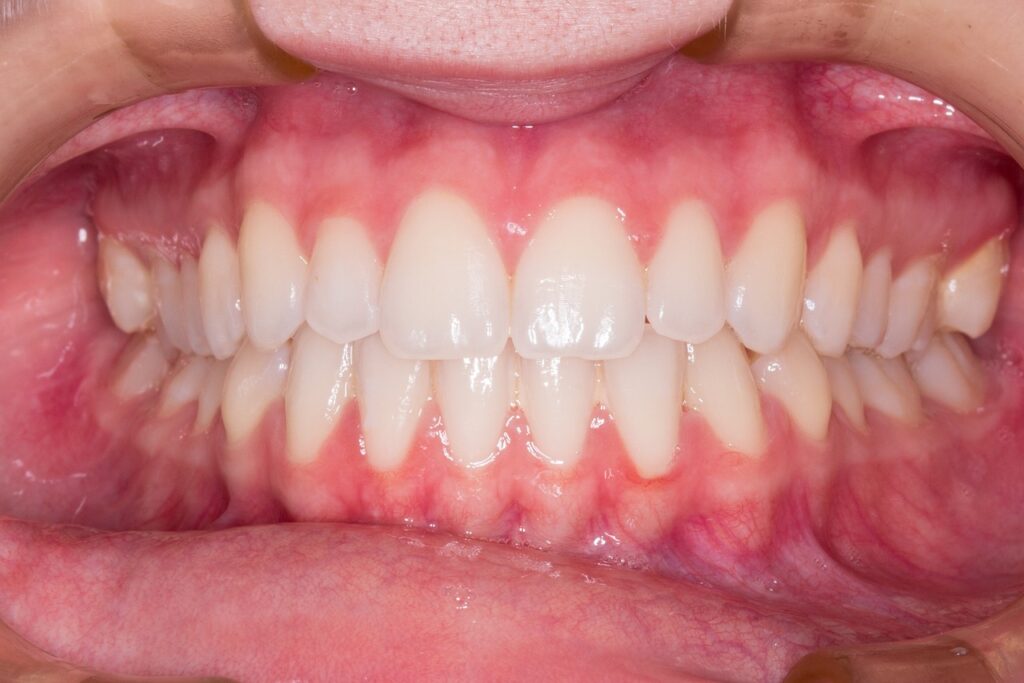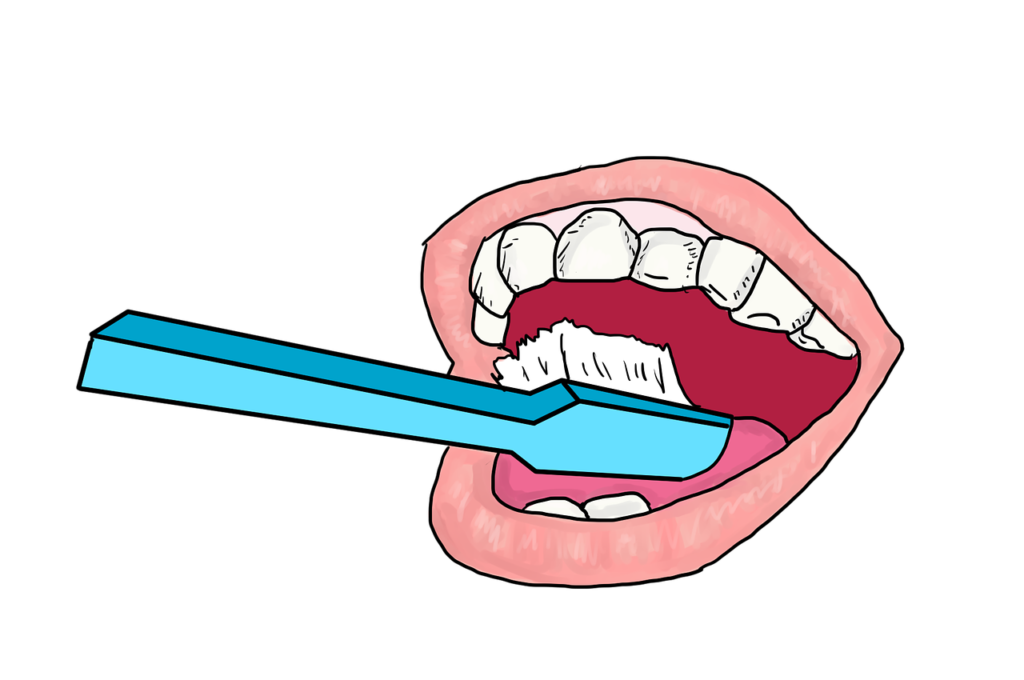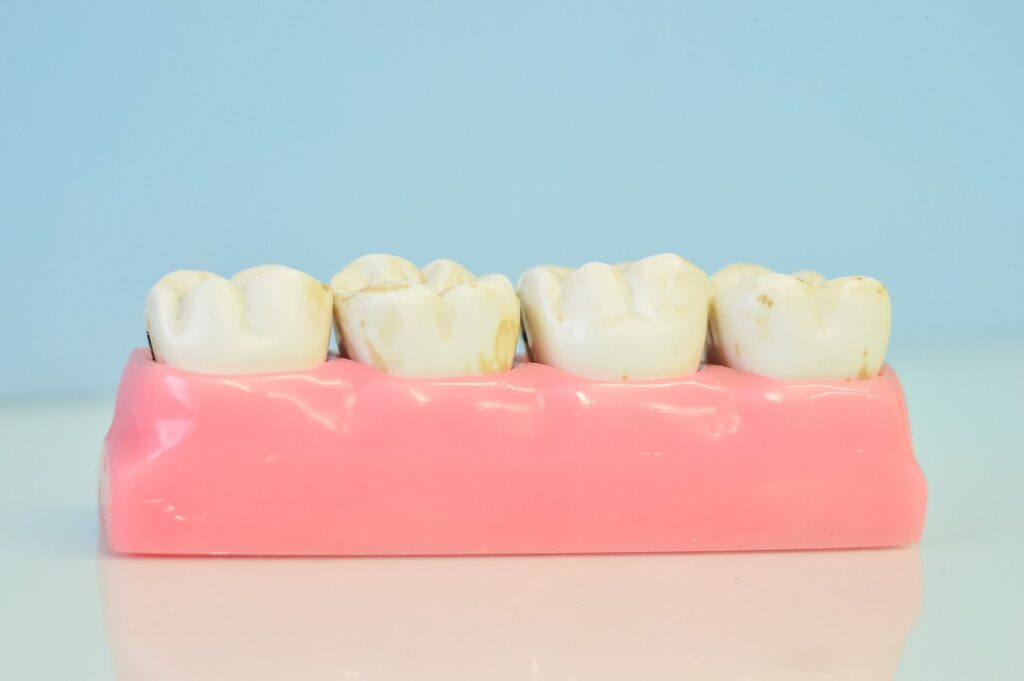Bleeding gums can be a frightening and unpleasant condition, but if you’ve ever experienced one, you’re not alone. We will investigate the definition, pathophysiology, causes, risk factors, signs and symptoms, and methods for preventing bleeding gums in this comprehensive beginner’s guide. In addition, we will investigate the fascinating field of homeopathy and its application to the treatment of this prevalent problem with oral health.

What are Bleeding Gums?
Gingival bleeding, or bleeding gums, is a condition characterized by the abnormal and frequently spontaneous discharge of blood from the gums while brushing, flossing, or even eating. It can be a frightening experience, but effectively managing this issue requires an understanding of its underlying causes and potential solutions.
The Pathophysiology of Bleeding Gums
It is essential to comprehend what is occurring beneath the surface of any health issue before dealing with it. Gingivitis, an inflammation of the gum tissues, is the most common cause of gingival bleeding. This inflammation, which can be caused by plaque buildup on teeth, can make the gums more sensitive and prone to bleeding. Gingivitis has the potential to worsen into periodontitis, a more severe condition, if left untreated.
Causes of Bleeding Gums
For effective treatment and prevention, it is essential to comprehend the causes of bleeding gums. This condition may be caused by one or more of the following:
1. Poor Oral Hygiene: Not brushing and flossing enough can let plaque build up, which can cause gum inflammation.
2. Medications: Some medications, like anticoagulants and some antihypertensives, can make bleeding gums more likely.
3. Medical Conditions: Gum health can be affected by systemic diseases like diabetes, blood disorders, and vitamin deficiencies.
4. Changes in Hormones: Gum sensitivity and bleeding can occur during pregnancy, menstruation, and menopause.
5. Smoking: Using tobacco products can harm the health of the gums and delay the healing process.
6. Nutrition: A lack of vitamin C and other nutrients can weaken the tissues of the gums.
Risk Factors of Bleeding Gums
Bleeding gums can happen to anyone, but there are some risk factors that make it more likely. Some of these risk factors are:
1. Age: Bleeding gums are more common in older people.
2. Genetics: Having bleeding gums in your family can raise your risk.
3. Stress: High levels of stress can weaken the immune system, putting the gums at greater risk.
4. Bruxism (Teeth Grinding): Teeth grinding, also known as bruxism, can cause damage to the gums.
5. Consumption of Alcohol: Consuming an excessive amount of alcohol can exacerbate gum inflammation.
Understanding these risk factors can help you take proactive steps to prevent bleeding gums.
Signs and Symptoms of Bleeding Gums
Recognizing the signs and symptoms of bleeding gums early on can help you address the issue promptly. Common indications include:
1. Bleeding during Brushing or Flossing: The most obvious sign of bleeding gums.
2. Swollen or red gums: Gum color and texture changes are frequently a sign of inflammation.
3. Bad Breath: Halitosis, or persistent bad breath, can indicate bleeding gums.
4. Receding Gums: Gums that are pulling away from the teeth can cause bleeding and expose sensitive areas.
5. Pain or Discomfort: Gum tenderness and discomfort during chewing can be a sign of bleeding gums.
6. Pus Between Teeth: In advanced cases, pus may develop around the gumline.
Being aware of these symptoms can prompt you to seek timely dental care.
Prevention of Bleeding Gums
Not only is it possible to stop bleeding gums, but doing so is also essential for preserving overall oral health. The following are some concrete actions you can take:
1. Brush your teeth at least twice a day and floss once a day to keep plaque out and inflammation at bay.
2. Visit your dentist for regular cleanings and checkups to identify and treat gum problems early.
3. For gum health, eat a lot of fruits, vegetables, and vitamins.
4. Include strategies for reducing stress in your routine, such as yoga or meditation.
5. If you smoke, consider quitting to improve the health of your gums and your overall health.
6. Keep your gums hydrated by drinking plenty of water. This can help flush out bacteria.
Homeopathy and Bleeding Gums: Exploring Natural Remedies
Now that we’ve covered the basics of bleeding gums, let’s dive into the world of homeopathy and its potential benefits in treating this oral health concern.
Homeopathic Remedies for Bleeding Gums
Homeopathy provides a variety of treatments that can be adapted to a person’s symptoms and constitution. The following are some common homeopathic treatments for bleeding gums:
1. Mercurius Solubilis: When gums are swollen, red, and prone to bleeding, this remedy is frequently recommended. Additionally, it may alleviate bad breath and excessive salivation.
2. Carbo Vegetabilis: This remedy may be considered if the patient’s gums are irritated, bleed frequently, and feel cold and weak.
3. Silicea: Gum grittiness, gum boils, and receding gums are all conditions that can be treated with silicea.
4. Plantago Major: Because of its affinity for the mucous membranes, this remedy may be useful for both toothache and bleeding gums.
Benefits of Homeopathy for Bleeding Gums
In the world of homeopathy, several remedies can be beneficial for bleeding gums:
1. Hamamelis: Useful for passive venous hemorrhages, especially after surgeries, in warm, moist conditions.
2. Phosphorus: Effective for swollen and easily bleeding gums, particularly after tooth extractions, aggravated by warmth and relieved by cold.
3. Kreosotum: Recommended for red, bleeding lips and painful dentition, worsened by cold rest and improved by warmth.
4. Mercurius Solubilis: Beneficial for spongy, receding gums that bleed frequently and are made worse at night and in damp weather.
5. Bovista: Good for gums that bleed frequently, especially at night, after a tooth extraction.
6. Arnica Montana: Effective for bleeding gums following dental extractions or injuries, aggravated by touch and motion, and more effective when used in a lying down position.
Keep in mind that a qualified homeopath should choose the remedy based on each person’s symptoms and constitution. If you have serious or persistent problems with your oral health, you should always see a doctor.

Consult a Homeopath
While homeopathy has potential advantages, proper evaluation and direction from a qualified homeopathic practitioner or dentist is essential. They will look at your particular situation and tell you which homeopathic remedy will work best for your bleeding gums.
Conclusion: The Green Flags of Homeopathy
Bleeding gums can be a painful problem, but it can be effectively managed and avoided with the right information and proactive measures. Taking care of your gum health should always be a top priority, regardless of whether you opt for traditional dental treatment or look into homeopathy. Keep in mind that your overall health depends on your oral health, and healthy gums are the first step toward a healthy smile.
Reach out to us for a Consultation
For any queries, reach out to us at contact@homeopathic.ai
This blog is for information purposes. It’s crucial to note that while homeopathy is a centuries-old practice with many adherents worldwide, always consult a qualified homeopath or medical professional before initiating any treatment.





